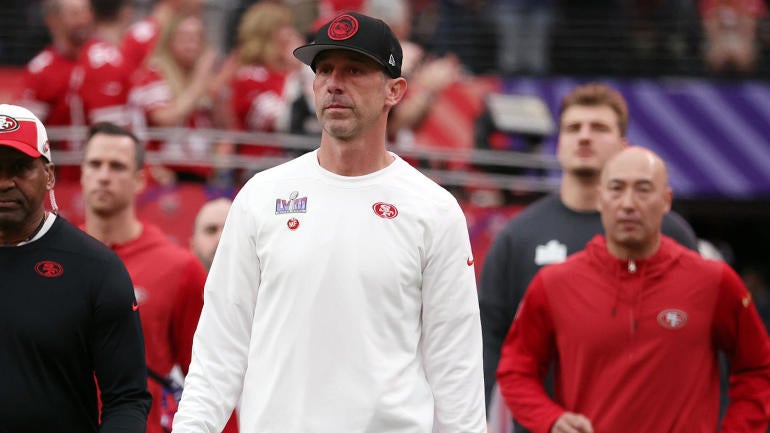
After the overtime coin toss in Super Bowl LVIII, the San Francisco 49ers had a choice: defer the opening kickoff and yield the ball to the Chiefs, giving their opponent the first opportunity to score but affording themselves the information advantage on their first possession of the extra period; or take the ball first, try their best to score a touchdown, and -- if the game ended up tied after each team possessed the ball -- get the first shot in a potential sudden-death situation.
Niners coach Kyle Shanahan decided to go with the latter strategy. His team then drove down the field with the first possession of overtime, but stalled out and ended up kicking a field goal. They never got the chance to possess the ball in sudden death, because the Chiefs took their possession right down the field and scored a touchdown, with Mecole Hardman winning the game for Kansas City on a 3-yard reception from Patrick Mahomes.
Following the game, Shanahan explained his thought process.
"It's just something we talked about," Shanahan said in his postgame news conference. "None of us have a ton of experience with [the new overtime rules]. But we went through all the analytics and talked to those guys. We just thought it would be better. We wanted the ball third. If both teams matched and scored, we wanted to be the ones who had the chance to go win. So got that field goal, so knew we had to hold them to at least a field goal and if we did, we thought it was in our hands after that."
This was the first time an NFL game has gone to overtime with the new playoff overtime rules, which were changed following the Chiefs' victory over the Buffalo Bills in the famous "13 Seconds" AFC title game. Under the new rules, both teams have an opportunity to possess the ball in overtime regardless of what happens on the first possession, unless it ends in a defensive score.
It can be argued that taking the ball first provides exactly the opportunity Shanahan detailed: the first chance to win in the event that both teams came away from their initial possession with the same number of points, setting up sudden death. Of course, it can also be argued that it's better to have the information regarding what your opponent did on the initial possession, so that you can calibrate exactly how aggressive you want to be once you do possess the ball.
It's not the first time Shanahan's Super Bowl decision-making has been a flashpoint.
As the offensive coordinator of the Atlanta Falcons in Super Bowl LI, Shanahan's decision to continue throwing the ball with his team leading the Patriots in the second half played a significant role in New England's comeback from a 28-3 deficit. In Super Bowl LIV, Shanahan elected not to have his team try for a last-minute drive in the first half, instead content to go into halftime tied with the Chiefs. Kansas City eventually came back from down by double-digits to win the game.
And on Sunday night, Shanahan elected not to use his timeouts toward the end of the first half when the Chiefs had the ball in the red zone, robbing his team of a potential last-minute drive and a chance to extend their lead. Again, the Chiefs came back from down by double digits to win, this time in overtime, and after another Shanahan decision. We'll have to see how his choice to take the ball first affects what teams decide in the future. Such a high-profile game ending the way it did is sure to make a major impact on other coaches.

















